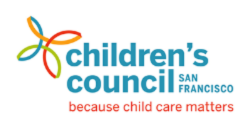Topics
Choosing Child CareFamilies' RightsFamily & Community EngagementFinancial AssistanceLicensing & SafetyParenting & Child DevelopmentProvider ResourcesResource & ReferralSpecial NeedsThe play-based learning philosophy is inspired by a child’s natural tendency to play. It helps kids grow because it meets the needs of the whole, unique child. It inspires children to come up with their own ideas and solutions. Purposeful play can be found in most early learning programs.
Active, playful, hands-on experiences foster a love of learning. The play-based classroom is set up with safe areas for exploration. Children can test their limits and abilities in a safe, low-risk environment. Learning in this way is entirely self-directed. Teachers and caregivers use “guided play” to introduce special learning skills alongside the child’s play. Children may play with a kitchen, a water station, a science table, and other toys or learning areas.
This kind of learning develops language skills, social skills, self-help skills, and motor skills. This type of learning also helps children learn problem-solving skills, and they become more resilient when things are challenging. When playing, children build skills to better manage difficult emotions.
Play-based early education helps children:
- Feel comfortable in a school setting
- Strengthen problem-solving skills
- Build better learning behaviors
- Learn from trial and error
- Develop empathy
- Develop reasoning skills
- Spark creativity and imagination
- Improve self-esteem and confidence
Play-based learning enables children to address their own needs and choose activities that benefit their individual learning styles. Since learning is fun, children have a better time grasping information. Play promotes interest, motivation, and mastery.
It’s believed that play makes it easier to understand more complex subjects like math and science. Early education play-based learning sets children up for future learning and success for kindergarten and beyond.
Sources:
https://www.unicef.org/sites/default/files/2018-12/UNICEF-Lego-Foundation-Learning-through-Play.pdf
https://www.childrensmuseums.org/images/MCMResearchSummary.pdf
Was this article helpful?
Similar Resources
Families’ Rights in Choosing Child Care
In California, parents have the right to make the best child care choices for their family. Parents have many options:...Child Care Resource and Referral Agencies (CCR&Rs)
What is a CCR&R? Child care resource and referral agencies (CCR&Rs) serve families, child care providers and the...Licensing and Monitoring for Child Care Facilities in California
Community Care Licensing Information The Department of Social Services, Community Care Licensing (CCL) licenses and moni...Log into your account
Don't have an account? Sign up
Sign up to save your own provider lists
Already have an account? Log in
Create an account with Email Address | Phone Number

